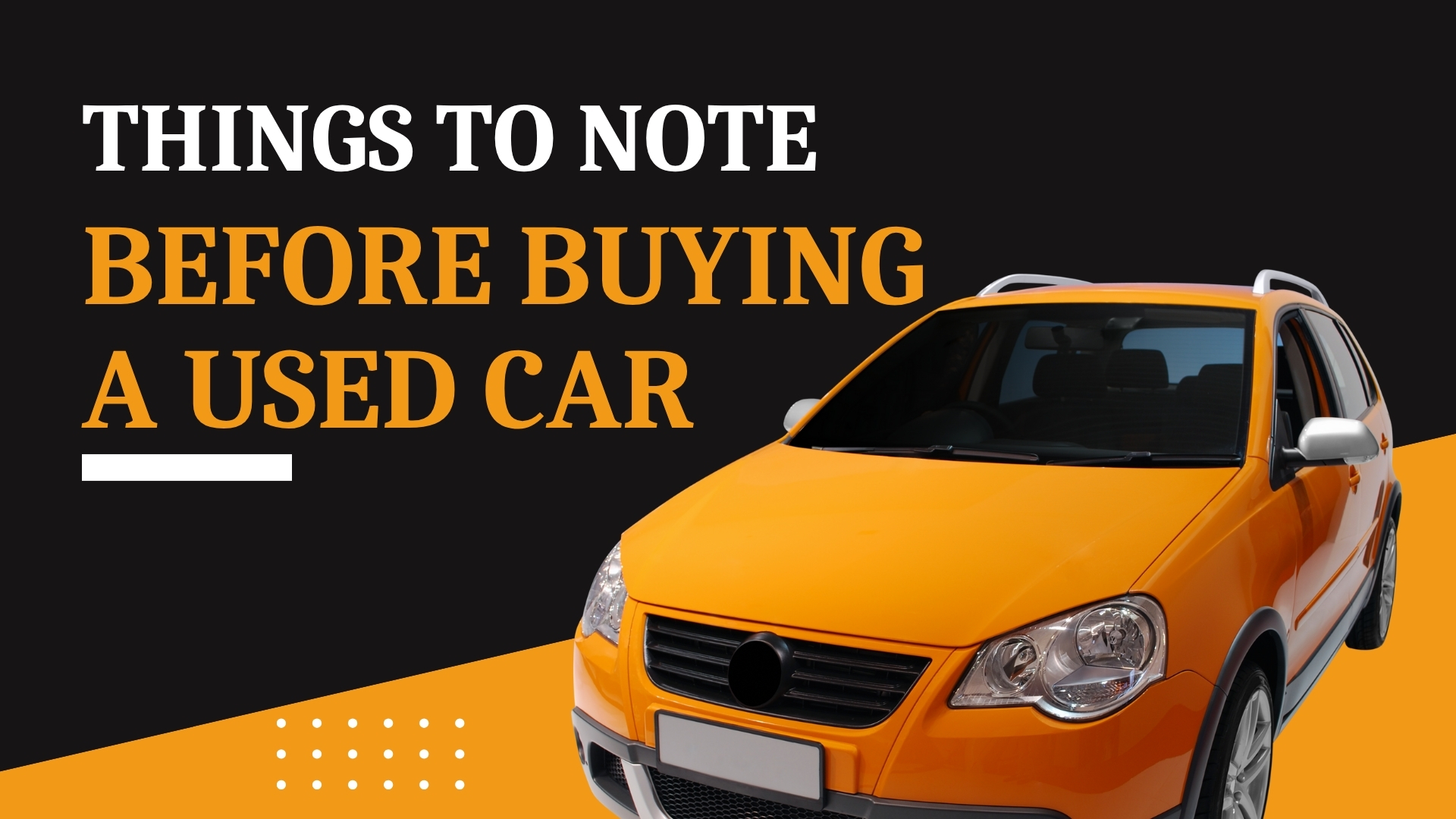Buying a used car can be both exciting and daunting. With the potential to save thousands compared to a new vehicle, the used car market offers attractive opportunities—but also risks. From hidden mechanical issues to questionable ownership histories, the process demands careful consideration. Whether you’re a first-time buyer or a seasoned shopper, understanding the key things to note before buying a used car can help you avoid costly mistakes and drive away with confidence.
In this comprehensive guide, we’ll walk you through every critical step: what to look for, how to inspect a vehicle, questions to ask the seller, and common pitfalls to avoid. We’ll also provide a handy checklist, comparison tips, and answers to frequently asked questions. By the end, you’ll have the knowledge and tools needed to make a smart, informed decision on your next used car purchase.
What to Consider Before Buying a Used Car

1. Determine Your Budget
Before you even start browsing, establish a clear budget. Consider not just the purchase price but also ongoing costs such as insurance, taxes, registration, maintenance, and potential repairs. Decide whether you’ll pay cash, finance, or lease, and get pre-approved for a loan if needed.
Key Points:
- Set a realistic price range.
- Factor in additional costs (insurance, taxes, maintenance).
- Consider financing options and interest rates.
2. Research the Right Car for Your Needs
Think about your lifestyle, driving habits, and must-have features. Are you looking for fuel efficiency, cargo space, or advanced safety features? Make a list of preferred makes and models, and research their reliability, resale value, and common issues.
Tips:
- Use online resources (Kelley Blue Book, Edmunds, Consumer Reports).
- Check owner reviews and reliability ratings.
- Compare similar models for features and value.
3. Check Vehicle History
A car’s past can reveal a lot about its future reliability. Always request a vehicle history report (from Carfax, AutoCheck, or similar services). This report will show:
- Accident history
- Title status (clean, salvage, rebuilt)
- Odometer readings
- Service and maintenance records
- Number of previous owners
Red Flags:
- Salvage or rebuilt titles
- Multiple accidents
- Inconsistent mileage
4. Inspect the Car Thoroughly
A detailed inspection is crucial. If possible, bring a trusted mechanic to assess the car’s condition. Here’s what to check:
Exterior
- Paint consistency and color matching
- Signs of rust, dents, or scratches
- Condition of tires (even wear, tread depth)
- Functionality of lights and mirrors
Interior
- Upholstery condition (tears, stains, odors)
- Dashboard warning lights
- Functionality of electronics (radio, windows, AC)
- Seat adjustments and comfort
Under the Hood
- Fluid levels (oil, coolant, brake, transmission)
- Signs of leaks or corrosion
- Battery age and condition
- Belts and hoses
Test Drive
- Engine performance (smooth start, no unusual noises)
- Transmission shifts (automatic or manual)
- Braking responsiveness
- Steering alignment and handling
- Suspension comfort
5. Verify Ownership and Documentation
Ensure the seller has the legal right to sell the car. Review all paperwork carefully:
- Title (ensure it’s in the seller’s name and free of liens)
- Bill of sale
- Maintenance records
- Emissions and inspection certificates (if required in your area)
6. Negotiate the Price
Armed with your research and inspection findings, negotiate confidently. Use the vehicle’s history, condition, and market value as leverage. Don’t be afraid to walk away if the deal doesn’t feel right.
7. Finalize the Sale
Once you agree on a price, complete all paperwork accurately. Arrange for payment, transfer the title, and update registration and insurance before taking possession.
Used Car Inspection Checklist
Here’s a handy checklist to bring when inspecting a used car:
| Area | What to Check | Notes/Red Flags |
|---|---|---|
| Exterior | Paint, rust, dents, tires, lights | Mismatched paint, uneven wear |
| Interior | Seats, dashboard, controls, odors | Stains, warning lights |
| Under the Hood | Fluids, leaks, belts, battery | Low fluids, corrosion |
| Test Drive | Engine, brakes, steering, suspension | Noises, vibrations |
| Documentation | Title, history report, service records | Salvage title, missing docs |
Comparing Private Sellers vs. Dealerships
When buying a used car, you’ll typically choose between a private seller and a dealership. Each has its pros and cons:
| Aspect | Private Seller | Dealership |
|---|---|---|
| Price | Often lower, more negotiable | Higher, may include fees |
| Selection | Limited to individual’s car | Wide range of vehicles |
| Warranty | Usually none | May offer limited warranty |
| Paperwork | Buyer handles most | Dealer manages paperwork |
| Inspection | Buyer’s responsibility | May offer certified inspections |
Tip: Certified Pre-Owned (CPO) vehicles from dealerships come with added peace of mind, including warranties and thorough inspections, but may cost more.
Common Mistakes to Avoid When Buying a Used Car
- Skipping the Inspection: Never buy a car without a thorough inspection, even if it looks perfect.
- Ignoring the Vehicle History Report: Hidden accidents or title issues can lead to big problems.
- Not Test Driving: Always take the car for a spin to check for issues.
- Focusing Only on Price: A cheap car with expensive repairs isn’t a good deal.
- Rushing the Process: Take your time to research, inspect, and negotiate.
FAQ: Things to Note Before Buying a Used Car
What documents do I need to buy a used car?
You’ll typically need the vehicle title, a bill of sale, proof of insurance, and sometimes an emissions or inspection certificate. Make sure the title is clear and in the seller’s name.
How do I know if a used car is a good deal?
Compare the asking price to the car’s market value using resources like Kelley Blue Book or Edmunds. Factor in the car’s condition, mileage, and history.
Should I buy from a private seller or a dealership?
Private sellers often offer lower prices, but dealerships may provide warranties and handle paperwork. Decide based on your priorities and comfort level.
Is a vehicle history report necessary?
Absolutely. It reveals crucial information about accidents, title status, and maintenance, helping you avoid cars with hidden problems.
Can I return a used car after purchase?
Most private sales are final. Some dealerships offer limited return policies or warranties, so ask before buying.
What are the most reliable used car brands?
Brands like Toyota, Honda, Subaru, and Lexus are known for reliability. Always check specific model reviews and maintenance records.
How many miles is too many for a used car?
It depends on the make and model, but generally, cars with over 100,000 miles may require more maintenance. Focus on condition and service history.
Additional Tips for a Successful Used Car Purchase
- Bring a Mechanic: A professional inspection can save you from expensive surprises.
- Check for Recalls: Use the VIN to check for unresolved recalls.
- Ask About Previous Use: Was the car used as a rental, fleet, or personal vehicle?
- Review the Warranty: Some cars may have transferable factory warranties.
- Trust Your Instincts: If something feels off, don’t hesitate to walk away.
Conclusion: Drive Away with Confidence
Buying a used car doesn’t have to be stressful or risky. By taking the time to research, inspect, and verify every aspect of the vehicle, you can avoid common pitfalls and secure a reliable ride that fits your needs and budget. Remember the key things to note before buying a used car: set a realistic budget, research thoroughly, inspect carefully, verify documentation, and negotiate wisely.
Whether you’re buying from a private seller or a dealership, knowledge is your best ally. Use the checklists and tips provided in this guide to make an informed decision and enjoy peace of mind on the road ahead.
Recommended Used Cars for Reliability and Value
If you’re looking for a shortlist of dependable used cars, consider these models:
- Toyota Corolla: Renowned for reliability and low maintenance costs.
- Honda Civic: Excellent fuel economy and strong resale value.
- Mazda3: Fun to drive with a reputation for durability.
- Subaru Outback: All-wheel drive and great for families or outdoor enthusiasts.
- Ford Fusion: Comfortable ride and good safety ratings.
- Hyundai Elantra: Affordable and packed with features.
Each of these models offers a solid balance of value, reliability, and affordability—making them excellent choices for used car buyers.
Ready to start your search? Keep this guide handy, and you’ll be well-equipped to find the perfect used car for your needs!

